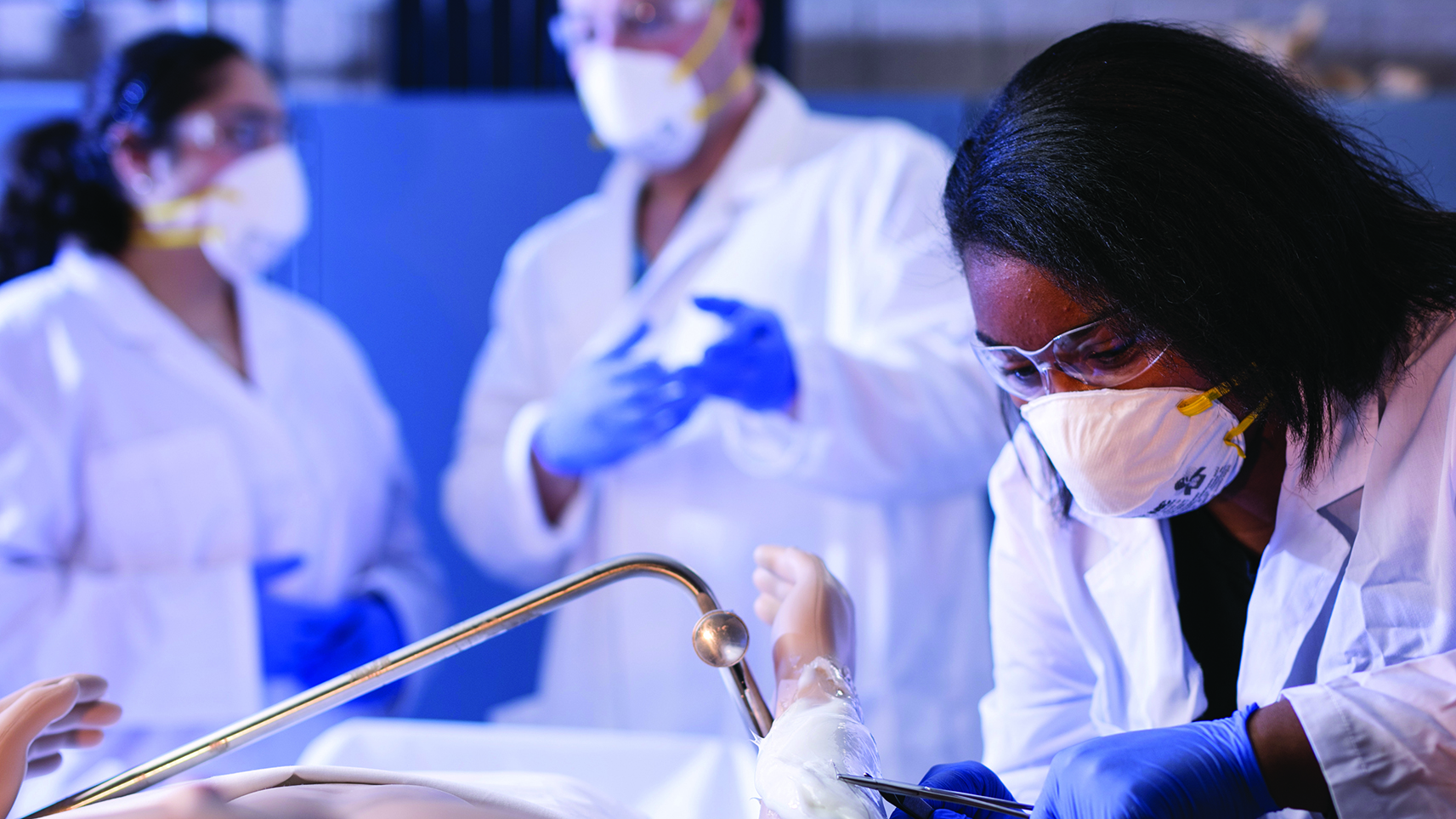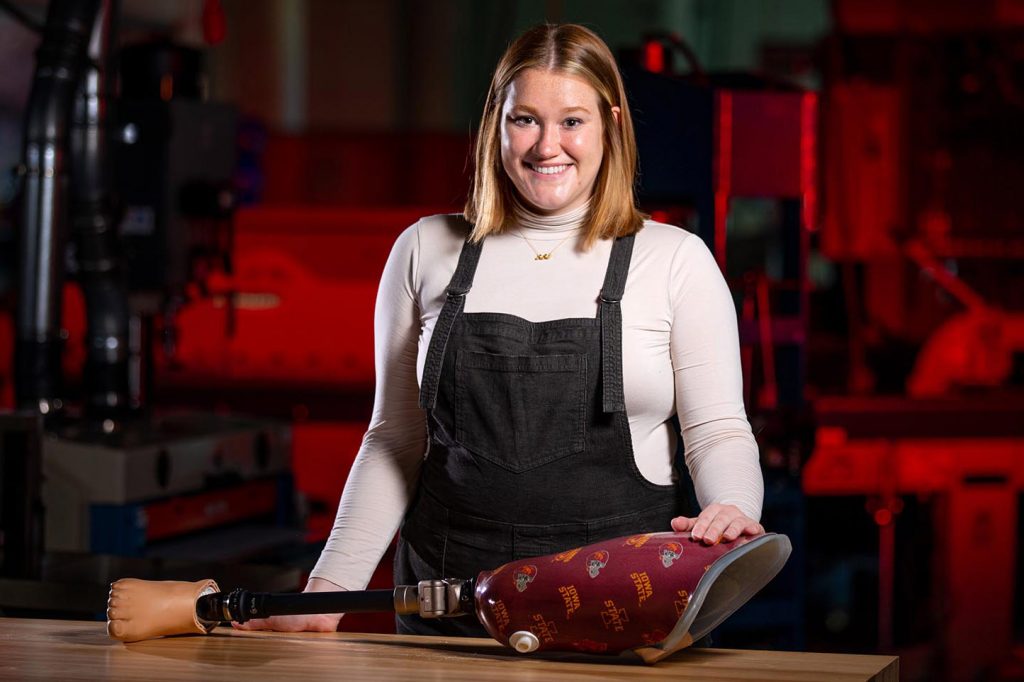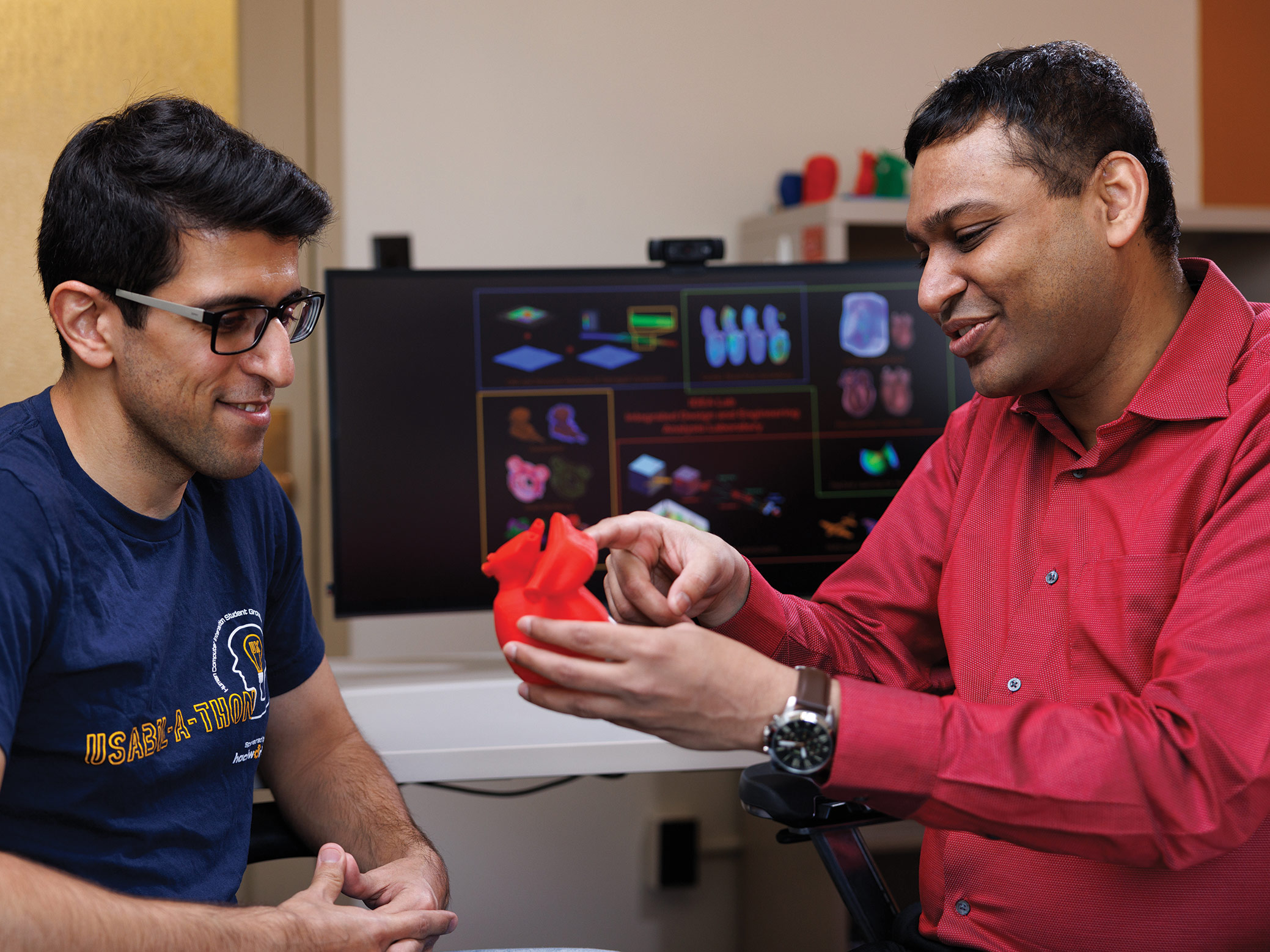What is Biomedical Engineering?
Biomedical engineering seeks to better human health by designing engineered systems that can interface with biomedical systems or by controlling the biomedical systems themselves. Biomedical engineers leverage their deep understanding of fundamental scientific disciplines including physics, chemistry and biology as well as a broad understanding of different traditional engineering disciplines such as chemical, electrical and mechanical engineering. Broad areas of biomedical engineering include medical molecules and materials, biomedical mechanics and manufacturing and biomedical instrumentation that allow for engineering of cells and tissues, delivery of drugs and vaccines, or devices that can detect or alleviate disease, regenerate tissue or assist after injury.
Practicing biomedical engineers work in research, uncovering fundamental properties of either biomedical systems or the engineered systems with which they interface. They work as product engineers, bringing innovative technology to bear in a usable product that can pass approval processes by the relevant regulatory organizations or process engineers, developing manufacturing approaches that can produce products economically, safely and under the proper conditions to ensure their use in the human body. Finally, biomedical engineers work in technical sales, intellectual property or governmental regulation.



